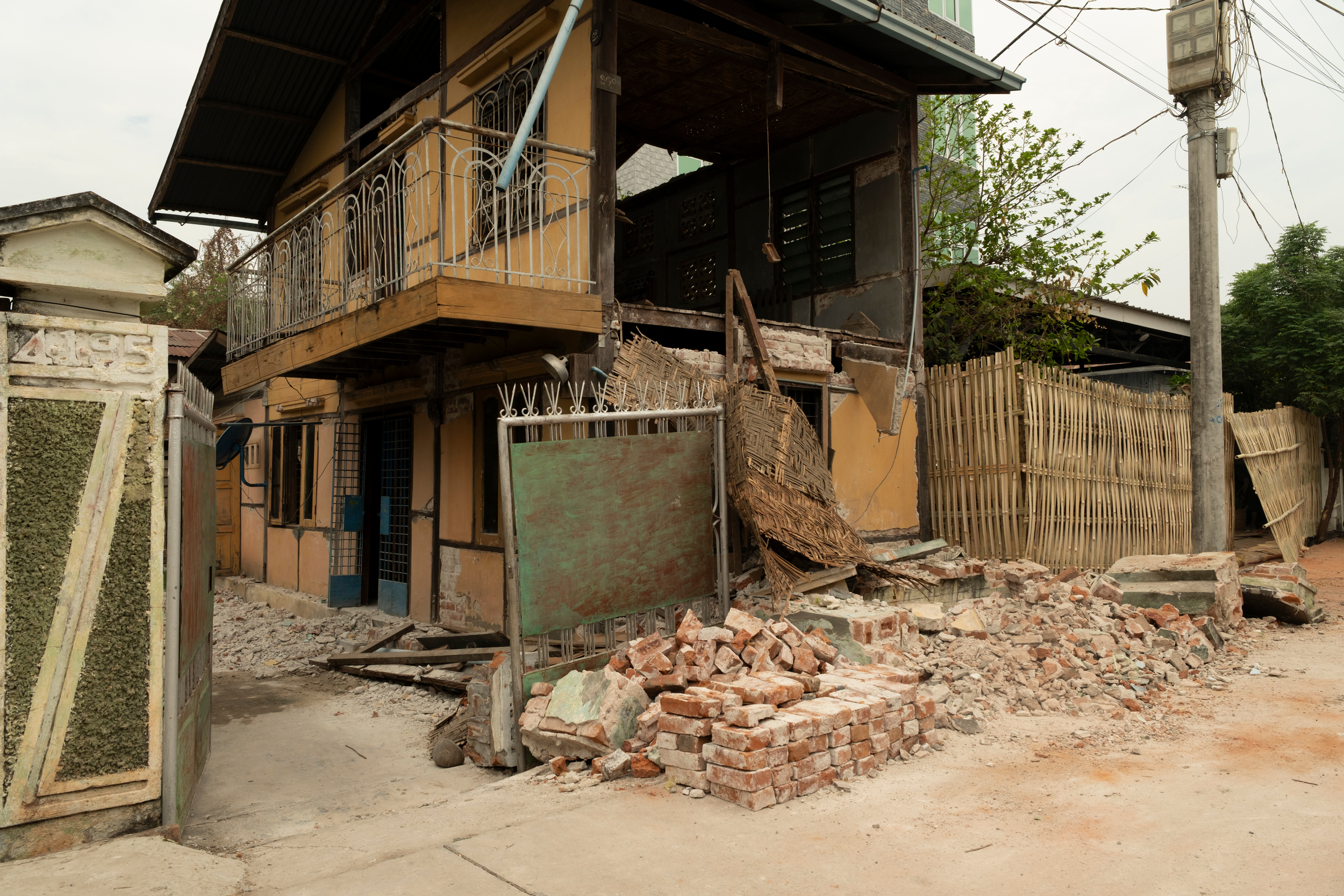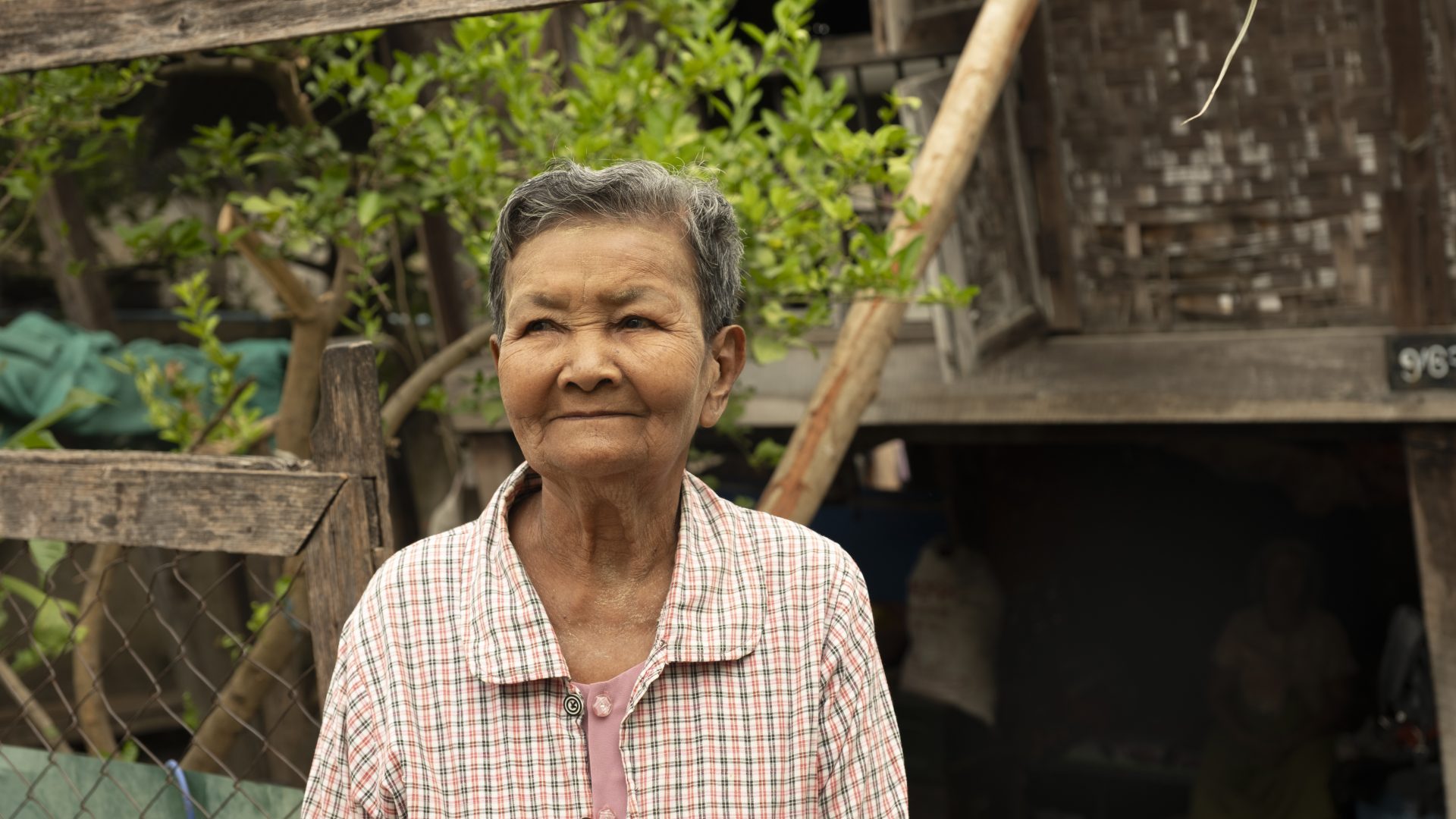The day the earth moved
Speaking softly but firmly, Daw Khin Myaing recounted the moments when the earth roared beneath her feet.
The first earthquake struck during breakfast. She had just told her niece what she wanted for lunch – fish curry and tamarind leaf soup – when the shaking began.
“My niece was screaming, holding onto the table. The whole village was noisy. Bricks fell. Our house was damaged. Twelve of us now sleep on the living room floor on waterproof fabric. We don’t dare sleep alone.”
She was attending a local charity event that coincided with Armed Forces Day when the quake struck. “I had only packed two or three sets of clothes,” she explained. “After the event, I couldn’t go back to my home, the children said it wasn’t safe for me to sleep there. So I stayed in the village. Then another earthquake happened. They keep coming.”
For Daw Khin Myaing, the earthquakes were not just geological shocks – they were deeply personal. “Over my 80 years, I’ve never experienced anything like this. With political unrest, we used to flee with our mosquito nets and milk tins. But this? This is different. You can’t run from the ground.”
Her home – like many others – was damaged. Brick walls collapsed, possessions were smashed, and the building began to lean dangerously. For safety, she now sleeps on the floor in a crowded room with a dozen others. They haven’t slept soundly in days. “We’re afraid the brick wall will fall again. I’ll fix it at the end of the month – if I’m still alive then.”

The impact on her body and spirit
But safety comes at the cost of independence. Before the earthquake, she walked unaided. Now, her knees give way unexpectedly.


